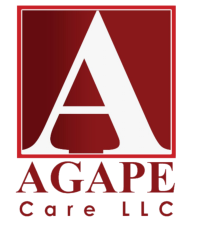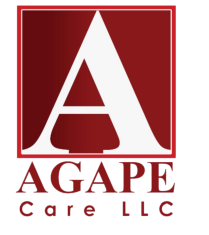10 Signs Your Aging Parent or Senior Loved One May Be Needing Home Care or Need Help
Recognizing when it’s time to consider home health care for your parents can be challenging. Many signs suggest they may need more support to stay safe and healthy at home. Understanding these signs can help you make the right decision for their well-being and your peace of mind.
Physical health often declines as we age. This can lead to frequent falls, difficulty with daily personal care, and poor nutrition. Keeping an eye on these changes is important. They can indicate that your parents need additional help to manage their day-to-day activities.
Changes in cognitive and emotional status are another major factor. Memory loss, confusion, and mood swings can dramatically affect your parents’ ability to live independently. Likewise, having trouble managing medications can pose serious health risks. By being aware of these signs, you can take the necessary steps to ensure they get the care they need when they need it.
Finally, changes in their home environment and an increased need for support can also signal that it’s time for home health care. Clutter, unpaid bills, and unsafe living conditions often point to challenges that your parents may not talk about. Recognizing these issues early allows you to provide the appropriate help, keeping them safe and improving their quality of life.
10 Signs of Decline in Physical Health for an Aging Parent
Frequent Falls or Injuries in Your Loved One
One of the main signs that it might be time to consider home care is frequent falls or injuries. As parents age, they may struggle with balance and coordination, making them more prone to falling. Even minor falls can lead to serious injuries like fractures or head injuries. If you notice that your loved one has fallen several times or is unsteady on their feet, it’s a clear signal that they could benefit from additional support at home.
Difficulty with Daily Personal Care for Seniors
Daily personal care activities, such as bathing, dressing, and grooming, can become challenging for older adults. If you observe that your aging parent is having trouble maintaining their personal hygiene or wearing clean clothes, it might be time to explore home care options. Struggling with these tasks can impact their overall well-being and self-esteem. Assistance from a caregiver can help them maintain their dignity and independence, allowing them to feel more comfortable and confident in their daily life.
Unexplained Weight Loss or Poor Nutrition
Unexplained weight loss or signs of poor nutrition are also concerning. Aging parents may forget to eat, skip meals, or have difficulty preparing nutritious food. This can lead to weight loss, weakness, and other health issues. Regularly checking their pantry and refrigerator for expired or uneaten food can provide clues about their eating habits. If you notice these signs, home care professionals can help manage their diet, prepare balanced meals, and monitor their nutritional intake, ensuring they stay healthy and well-nourished.
10 Signs of Cognitive and Emotional Changes in a Loved One
Memory Loss and Confusion in Your Senior Parent
Memory loss and confusion are common as people age but can signal the need for additional care. Forgetting important tasks, dates, or even familiar faces can disrupt daily life. If your parent frequently forgets to turn off appliances, misplaces essential items, or gets lost in familiar places, these are signs that they need more help. Home care can provide the support they need to manage everyday tasks safely and effectively.
Mood Swings or Depression in an Aging Parent
Mood swings and signs of depression can also indicate the need for home care. Older adults may experience changes in their emotional state, becoming more irritable, anxious, or withdrawn. If your parent shows signs of depression, such as lack of interest in activities they once enjoyed or changes in sleep patterns, it’s important to take these signs seriously. A caregiver can offer emotional support, companionship, and help with activities that promote mental well-being.
Difficulty Managing Medications
Managing medications can be complex and overwhelming for elderly parents, especially if they have multiple prescriptions. Missing doses or taking incorrect amounts can lead to serious health complications. If you notice that your parent is struggling to keep track of their medication schedule or is confused about their prescriptions, it’s a sign that they need assistance. Home care providers can help organize medications, set reminders, and ensure that they are taking the correct dosages, reducing the risk of medication-related issues.
10 Signs of Changes in Home Environment for an Aging Loved One
Clutter or Poor Housekeeping
A noticeable decline in housekeeping is a strong indicator that your parent may need help. If your parent’s home becomes cluttered or untidy, it’s often a sign they are struggling to maintain their living space. You might find piles of laundry, dirty dishes, or general disarray that can create unsafe conditions. This kind of environment poses risks, such as tripping hazards or unsanitary conditions, which can be mitigated with assistance from a caregiver.
Unpaid Bills or Neglected Responsibilities
Another red flag is unpaid bills or neglected financial responsibilities. If you notice piles of unopened mail, overdue notices, or disconnected utilities due to non-payment, it may indicate that your parent is having trouble managing their affairs. This could be due to memory issues, confusion, or simply feeling overwhelmed. Home care can offer the support needed to ensure bills are paid on time and important tasks are not overlooked.
Unsafe Living Conditions for a Senior Loved One
Unsafe living conditions are a serious concern. Broken appliances, dim lighting, and lack of safety features like grab bars can make it difficult for your parent to navigate their home safely. Regularly checking for these hazards and addressing them promptly is important. If the home’s condition becomes hazardous, it may be time to look into home care options. Professional caregivers can help maintain a safe and healthy environment, improving your parent’s quality of life.
10 Signs an Aging Parent Needs More Support and Home Care
Need for Companionship and Social Interaction
Loneliness and isolation can significantly impact an elderly parent’s mental and physical health. If you notice your parent is spending most of their time alone or seems lonely, this is a sign they may benefit from regular companionship. Simple interactions, such as talking with a caregiver, attending social activities, or even short outings, can greatly improve their mood and overall well-being.
Difficulty with Transportation and Errands
Many older adults find it challenging to drive or use public transportation. If your parent has difficulty getting to medical appointments, grocery shopping, or running other errands, home care might be the solution. Caregivers can provide transportation and assistance with these tasks, ensuring your parent can access necessary services and continue their daily routines without stress.
The Strain on Family Caregivers
Family caregivers often feel overwhelmed by the demands of supporting an aging parent. If you or other family members are experiencing burnout, stress, or health issues due to caregiving responsibilities, it’s a sign that additional help is needed. Bringing in professional caregivers can relieve some of this strain, allowing family members to focus on their own well-being while ensuring their parent receives the care they need.
Final Thoughts
Recognizing when it’s time to consider home health care for your parents involves paying attention to various signs and changes in their lives. From physical and cognitive declines to changes in their home environment and increased need for support, these indicators can guide you in making the right decision. Providing your parents with professional home health care ensures they receive the assistance they need to maintain their safety, health, and independence.
If you’ve noticed any of these signs in your parents, it might be time to explore home health care options. At Agape Care LLC, we understand the importance of compassionate, personalized care. Our skilled caregivers are ready to provide the support your parents need to live comfortably and securely at home. Contact us today to learn more about how we can help your family.



